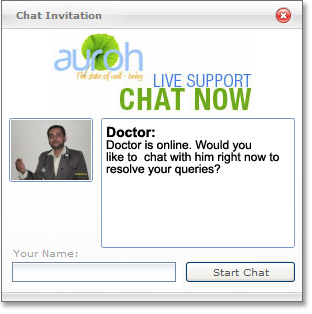|
|
||||||||||||||||||||||||||||||||||||
Disease Conditions
- Abscess
- Acne
- Addiction
- Adenoid Hypertrophy
- Allergic Rhinitis or Hay Fever
- Alopecia Areata
- Alzheimer’s Disease
- Amoebiasis
- Anxiety
- Asthma
- Backache
- Bed-Wetting-Enuresis
- Brain-Tumour
- Cataract
- Cirrhosis of Liver
- Conjunctivitis
- Constipation
- Dengue
- Depression
- Diabetes Mellitus
- Diseases of Prostate
- Eczema
- Epilepsy
- Erectile-Dysfunction
- Gallstones
- Goitre
- Gynaec
- Hepatitis
- Hepatitis-a
- Hepatitis-b
- Hepatitis-e
- Hyperthyroidism
- Hypothyroidism
- IBS - Irritable Bowel Syndrome
- Infertility
- Infertility FAQ
- Male Infertility
- Male Infertility FAQ
- Women Infertility
- Lichen Planus
- Lipoma
- Meningitis
- Menstrual-Disorders
- Migraine
- Molluscum-Contagiosum
- Nasal-Polyps
- Neoplasm
- Nephrotic Syndrome
- Neuralgia
- Osteo Arthritis
- Otitis
- Piles or Hemorrhoids
- Premature-Ejaculation
- Psoriasis
- Rheumatoid Arthritis
- Ringworm
- Schizophrenia
- Sinusitis
- Spondylitis
- Styes
- Tarsal Cyst-Chalazion
- Tonsilitis
- Typhoid
- Urinary-Tract-Infection
- Urticaria
- Vertigo
- Vitiligo
- Warts
Auroh Health Horoscope
Disease A - Z > Infertility > Homeopathic treatment for Infertility
Homeopathy treatment for Infertility
|
||||||||
Infertility mainly pertains to the biological unfitness of a person to contribute to conception. Infertility may also refer to the state of a woman who is unable to carry a pregnancy to full term. There can be many biological causes of infertility, some which may be by passed with medical intervention. Women who are fertile experience a natural period of fertility before and during ovulation, and they are naturally infertile during the rest of menstrual cycle. Fertility cognizance methods are used to distinguish when these changes occur by tracking changes in cervical mucus or basal body temperature
Reproductive endocrinologists, the doctors specializing in infertility, consider a couple to be infertile if the couple have not been able to conceive after 12 months of contraceptive-free intercourse if the female is over the age of 35(declining egg quality of females over the age of 35 account for the age-based variance as when to seek medical intervention) the female is incapable of carrying a pregnancy to term.
Sub- fertility
A couple that has fagged unsuccessfully to have a child for a year or more is said to be sub-fertile, meaning less-fertile than a typical couple. The couple's fertility ability rate is approximately 3-5%. Many of its causes are the same as those of infertility. Such causes could be endometriosis, or polycystic ovarian diseases.
Combined infertility
In few cases, both the man and woman may be infertile or sub-fertile, and the couple's infertility arises from the combination of these conditions. In some cases, the cause is suspected to be immunological or genetic; it may be that each partner is independently fertile but the couple cannot conceive together without assistance.

Unexplained infertility
In about 20-25% of cases the infertility investigation there will be no sign abnormalities. In these cases abnormalities are likely to be present but not detected by current methods. The possible abnormality can be that the egg is not released at the correct time for fertilization that it may not enter the fallopian tube, sperm may not be able to reach the egg, fertilization may fail to occur, transport of the zygote may be disturbed, or implantation fails. It is highly accepted that the egg quality is of vital importance and women of advanced maternal age have eggs of reduced ability for normal and successful fertilization.
Assessment
If both partners are young and healthy, and have been trying for a baby for 12 months to two years without success, a consultation with the family physician could help highlight potential medical problems earlier. The physician may also be able to suggest lifestyle changes to enhance the chances of conceiving. Women over the age of 35 should see their family physician after six months as fertility tests can take some time to complete, and age may affect treatment options that are open in that case.
A physician will take a medical history and conduct a physical examination. They might also carry out some basic tests on both partners to see if there is an identifiable reason. The results of these tests will help determine which would be the treatment.
Infertility Causes ?
A diagnosis of infertility is often considered in two stages, the first stage being the general infertility diagnosis, and the second stage being a diagnosis of the specific cause of the infertility. Infertility is almost a symptom itself. To treat infertility in the best possible way, finding the cause is helpful.
Two of the most common causes of female factor infertility include:
- Ovulatory Disorders – accounting for 18% to 30% of infertility in women
- Anatomical Disorders – like blocked fallopian tubes, often the result of infections or inflammations, like endometriosis or pelvic inflammatory disease
The two most common causes of male factor infertility include:
- Low Sperm Production: Medically referred to as azoospermia (complete lack of sperm cells) or oligospermia (few sperm cell are produced), this is the most common cause of male factor infertility
- Sperm Malformations: Though the amount of sperm is within the normal range, malformed sperm, as well as the inability of the sperm to make it to the egg before dying, can be a cause of infertility. Whatever causes infertility, the person should know there is reason for hope.
Infertility Diagnosis
When is a diagnosis of infertility given ?
A diagnosis of infertility is usually confirmed when a couple, after 12 months of trying to conceive, does not become pregnant.
Another kind of infertility is secondary infertility. Secondary infertility is diagnosed when a couple who has successfully carried to term a pregnancy previously, but now, when trying again, is not able to get pregnant after a year of trying. Also, a couple who suffers from recurrent miscarriages (usually after three successive losses) is also given a diagnosis of infertility
Is the year wait necessary for an infertility diagnosis ?
“Try for a year, and afterwards, come back if you’re not pregnant,” is the most common answer given to couples who are trying to conceive, especially those under the age of 35. But a year is a long time to wait. Do you have to try for a year before seeking help?
Not always.
- Consider charting: Another way to speed up diagnosis is to consider charting your cycles. Charting your cycles involves, at the most basic level, recording your morning temperature, and watching for specific patterns within your cycle.
If you’ve been charting your cycles for six months, and can document to your doctor that you’ve had sexual intercourse around the time of ovulation those six months, and still are not pregnant, they may be more likely to run some tests before your “year” of waiting is up. - If you're 35 or older, don't wait more than six months: If you’re over the age of 35, you shouldn’t wait any longer than six months before seeing a doctor. Because your fertility naturally decreases as you age (starting at the age of 25 for men, and at age 30 in women), time is of the essence once you pass age 35.
Who makes the infertility diagnosis ?
Usually, your regular gynecologist will make the first diagnosis of infertility. However, that’s not always the case. An endocrinologist or your regular family doctor may alert you to the possibility of fertility problems, if you have health problems that can lead to infertility, like thyroid issues, diabetes, or Pcod
Infertility Treatment
AUROH has contributed more than 15 years towards finding a solution for infertility. AUROH is the first to introduce a solution. We have a national and international reputation for the excellence of our services and our success history driven by the research contributions. The biggest challenge is to provide the world-class solution at affordable price. AUROH’S services are now spread out in all our clinics with this agenda alive. Our contribution has benefited hundreds of families and earned AUROH a special place in the hearts of the people.
| talk to our doctors right now |  |
|
| consult our experts | ||
 |
leave your number we will call you back |
|
| start auroh health treatment |
Your doctor is just a click away |
Treatment |










